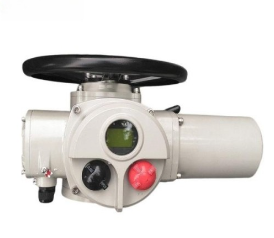Electric Actuators for Valve Control in Automation Systems and Industrial Applications
Understanding Electric Valve Actuators An Essential Component in Modern Automation
Electric valve actuators are critical components in automated control systems, playing a pivotal role in various industrial processes. These devices convert electrical energy into mechanical motion to control the opening and closing of valves, thereby regulating the flow of liquids, gases, and other substances within a system. As industries move towards greater automation and efficiency, the importance of electric valve actuators continues to grow.
What are Electric Valve Actuators?
At their core, electric valve actuators are electromechanical devices that provide precise control over valve operation. They can be utilized in numerous applications, including water treatment facilities, chemical processing plants, oil and gas refineries, and HVAC systems. Electric actuators typically consist of an electric motor, a gearbox, and connecting linkages that translate rotational motion into linear movement to operate the valve.
Electric valve actuators can be classified into two main types direct-acting and fail-safe. Direct-acting actuators operate based on the input signal received from a control system or a manual override. On the other hand, fail-safe actuators, designed for safety, revert to a default position (either open or closed) in the event of a power failure or emergency.
Advantages of Electric Valve Actuators
1. Precision Control Electric valve actuators allow for precise control of valve position, making them ideal for applications where flow regulation is critical. The ability to modulate the opening of valves translates to improved process control and efficiency.
2. Energy Efficiency Compared to pneumatic or hydraulic actuators, electric valve actuators consume less energy, especially in applications where compressed air or hydraulic fluid might be required. Their energy-efficient design reduces operational costs over time.
3. Modularity and Integration Electric actuators can easily integrate with various control systems and can be modular, allowing for easy installation, maintenance, and scalability. This feature enables operators to quickly adapt to changing process demands.
4. Reduced Maintenance The design of electric actuators typically requires less maintenance than their pneumatic or hydraulic counterparts. Fewer moving parts and the absence of fluid mechanisms mean there is less wear and tear, which can translate into lower operational downtime.
electric valve actuators

5. Enhanced Safety Electric valve actuators can be equipped with advanced monitoring and control systems that enhance safety in operations. Features such as feedback systems and position indicators provide operators with real-time information, facilitating timely and informed decisions.
Applications of Electric Valve Actuators
The versatility of electric valve actuators allows them to find applications across a wide range of industries. In the water treatment sector, they control the flow of water through various processes, from filtration to distribution. In the oil and gas industry, electric actuators are used to manage valves that control the flow of crude oil, natural gas, and refined products.
In chemical processing, the precision offered by electric actuators ensures that the correct amounts of chemical substances are mixed, leading to safer and more reliable operations. Additionally, in HVAC systems, these actuators help regulate airflow and maintain optimal temperature control within buildings.
Future Trends
As technology continues to advance, the future of electric valve actuators looks promising. Innovations such as smart actuators equipped with IoT capabilities are gaining prominence, allowing for enhanced monitoring and control through cloud-based systems. This development enables remote management and predictive maintenance, reducing the need for on-site interventions.
Furthermore, advancements in materials and design are expected to result in even more compact and efficient electric actuators. Enhanced durability and reduced environmental impact will likely be central themes as industries strive to become more sustainable.
Conclusion
Electric valve actuators are indispensable in the modern industrial landscape, providing crucial control over various processes. Their ability to deliver precise and reliable valve management, coupled with the benefits of energy efficiency and reduced maintenance, makes them an attractive choice for many applications. As industries continue to embrace automation and smart technologies, electric valve actuators are poised to play a vital role in shaping the future of process control. Understanding and leveraging these devices will be key to ensuring efficient and safe operations across various sectors.
-
The Key to Fluid Control: Exploring the Advantages of Ball Valves in Industrial SystemsNewsJul.09,2025
-
The Versatile World of 1, 2, and 3 Piece Ball ValvesNewsJul.09,2025
-
Stainless Steel Ball Valves: The Ideal Choice for Efficient Flow ControlNewsJul.09,2025
-
Optimizing Fluid Control with Ball Float ValvesNewsJul.09,2025
-
Manual Gate Valves: Essential for Control and EfficiencyNewsJul.09,2025
-
Everything You Need to Know About Butterfly ValvesNewsJul.09,2025
-
The Versatility of Wafer Type Butterfly ValvesNewsJul.08,2025




